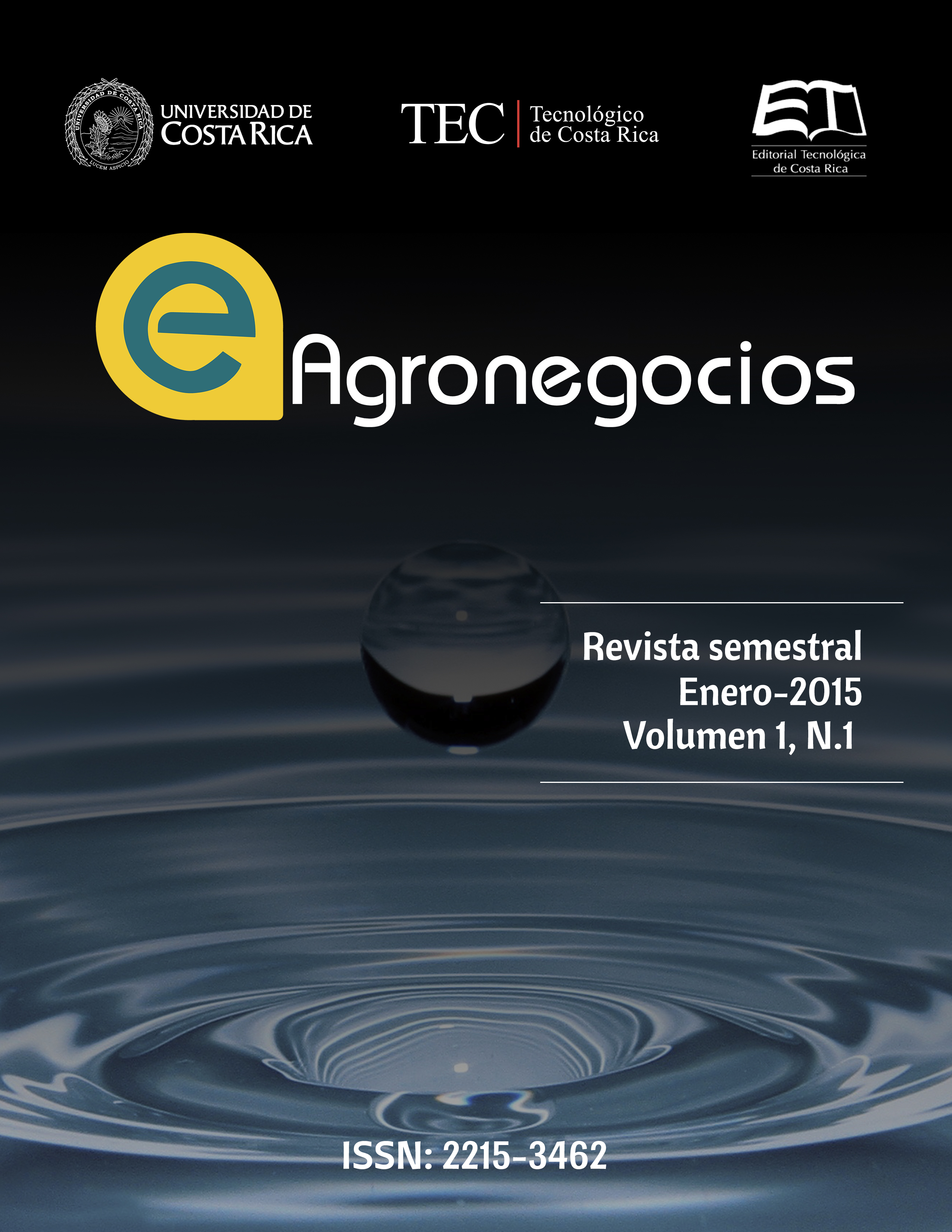Variable compensation policies by performance (VCMP) as a tool to get success in agribusiness
Main Article Content
Abstract
Variable compensation models for performance (VCMP) are presented as a tool to contribute to improving the work of general business, and agribusiness in particular. This document seeks to establish an empirical relationship between the implementation of the VCMP models and the improvement of the performance of the companies analyzed. There are two previous research conducted by the author in different moments: - A case study of a Honduran company dedicated to the production and marketing of shrimp, - A survey of a nonrandom sample of seven agro companies located in several countries of Latin America. The data analysis led to the conclusion that there is a benefit perceived by managers and owners of the companies studied, both at production and finance level, and in terms of human resource management (HRM), sales and marketing, and work quality. However, the study should to go into depth of various aspects to establish a representative pattern in the industry, so it is necessary to do a random sampling in the future, bounded by geographical area and adjust the methodology to eliminate bias caused by other aspects that could influence the indicators measured, in addition to the CVD's. One aspect that must be staked, is the influence of the high unemployment in the implementation and effectiveness of VCMP's models.
Article Details

This work is licensed under a Creative Commons Attribution-NonCommercial 4.0 International License.
Las personas autoras conservan los derechos de autor/a y ceden a la revista el derecho de la primera publicación y que pueda editarlo, reproducirlo, distribuirlo, exhibirlo y comunicarlo en el país y en el extranjero mediante medios impresos y electrónicos. Asimismo, las personas autoras asumen el compromiso sobre cualquier litigio o reclamación relacionada con derechos de propiedad intelectual, exonerando de responsabilidad a la Editorial Tecnológica de Costa Rica. Además, se establece que los autores pueden realizar otros acuerdos contractuales independientes y adicionales para la distribución no exclusiva de la versión del artículo publicado en esta revista (p. ej., incluirlo en un repositorio institucional o publicarlo en un libro) siempre que indiquen claramente que el trabajo se publicó por primera vez en esta revista.
References
Bohórquez, Valeria (2013). Tendencias en compensaciones en un marco de incertidumbre. Décimo congreso regional de Recursos Humanos, Universidad Blas Pascal (UBP) y Mercer (Marsh and McLennan Companies)
Cerda, J., Abarca, G. y Ibarbia, C. (2013).Éxitos y fracasos de la evaluación del desempeño y compensación variable. Simposio Productivity Systems.
Cruz, J. y Vega M. (2012). Diseño de un sistema de evaluación por desempeño en el Espresso Americano de Honduras.Proyecto final de graduación para optar por el título de Ingeniería en Agronegocios. Universidad Zamorano.
Moncada, F.y Vega, M. (2013). Efectos de la aplicación de sistemas de compensación variable por desempeño en agroempresas.Proyecto final de graduación para optar por el título de Ingeniería en Agronegocios. Universidad Zamorano.
Pérez López, J. (1994). Fundamentos de la Dirección de Empresas. Segunda edición, Ediciones RIALP, S.A., 290, 28027, Madrid.
Prat R., Muñiz L. (2002). Sistemas de retribución variable e indicadores de control de gestión. Partida doble: núm. 135. p. 66-79.
Valenzuela E. y Berg, H. (2003). Remuneraciones variables: una herramienta para alinear el R.H. a las estrategias de la empresa (experiencia en Chile) p. 54-62
Vega, M. (2011). Grupo Granjas Marinas: de vuelta a lo básico, estudio de caso. Universidad Zamorano.

